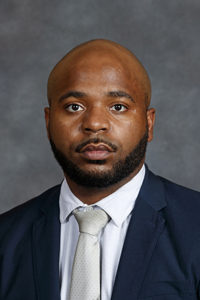Medicaid coverage for doulas proposed
The Health and Human Services Committee heard testimony Feb. 14 on a bill that would provide Medicaid coverage for doula services in Nebraska.

LB1278, sponsored by Omaha Sen. Terrell McKinney, would require the state Department of Health and Human Services to provide Medicaid coverage for doula and full spectrum doula services, beginning no later than Jan. 1, 2026.
The bill defines a doula as a trained companion who supports another individual and their family through a significant health-related experience. A full spectrum doula is defined as a trained companion who provides emotional, physical and informational support for individuals before, during and after labor and birth.
The bill also would require DHHS to establish a workgroup of stakeholders and experts to develop an implementation plan by Oct. 1, 2025, that includes provider reimbursement rates and core competencies required for a doula to qualify for reimbursement. There currently is no mandatory licensure or credentialing requirements for doulas to practice in the United States.
McKinney said doula support during pregnancy has been linked with significant improvements in maternal and infant health outcomes. Doula assisted mothers were four times less likely to have a baby with low-birth weight, two times less likely to experience a birth complication and significantly more likely to initiate breastfeeding, he said.
Despite improvements in prenatal care, McKinney said, mortality rates among Black and Indigenous pregnant people and infants are still two to three times higher than those for white pregnant individuals.
“Doula support is … a well-researched and evidence-based pathway to improve pregnancy outcomes and experiences,” McKinney said. “Increasing use of doula services is an important strategy to improve equity in maternal health care outcomes.”
Shanika King, a full spectrum doula and co-founder of A Mother’s Love, testified in support of LB1278. She said connecting birthing individuals with culturally specific doulas could help lessen the impact of systemic racism and improve maternal health outcomes.
“Due to a lack of resources and awareness about maternal health in our communities, mothers are dying,” King said. “When you have [cultural] knowledge … it makes a better birthing experience.”
Bryonna Ward also testified in support of the proposal. Ward said her doula was able to provide critical support as she made life or death decisions for herself and her child. Ward said having a doula saved her life.
“As a Black woman with a deep understanding of the gap in maternal health care and disparities … I knew that having a doula was deeper than having a birth companion,” Ward said. “It was about choosing life for me and my unborn child.”
Executive director of I Be Black Girl Ashlei Spivey spoke in favor of the proposal. A report from the March of Dimes found the U.S. to be the least safe developed country to birth a child, she said, and Nebraska has the 11th highest rate of maternal mortality in the country at 28%.
“There are accessible interventions that allow for people, especially Black people, to not only live through their birthing experiences, but thrive,” Spivey said. “Full spectrum doulas can disrupt [a] family’s experience of harm, mistreatment and adverse health outcomes by acting as an advocate while enhancing feelings of agency, security and respect.”
Joyce Dykema testified in opposition to LB1278 on behalf of the Doulas of North America board of directors. Although supportive of Medicaid expansion to cover doula services, she said, the board expressed concern that the definitions of a doula and full spectrum doula outlined in the bill do not align with widely recognized definitions of such services.
“The inaccurate definition of doula in LB1278 is so broad it could include minimally trained support for any number of health-related experiences outside of pregnancy,” Dykema said. “The likelihood of exploitation due to the ambiguous, misleading and incorrect definitions of doulas is high, putting extra strain on Medicaid dollars.”
The committee took no immediate action on the proposal.

